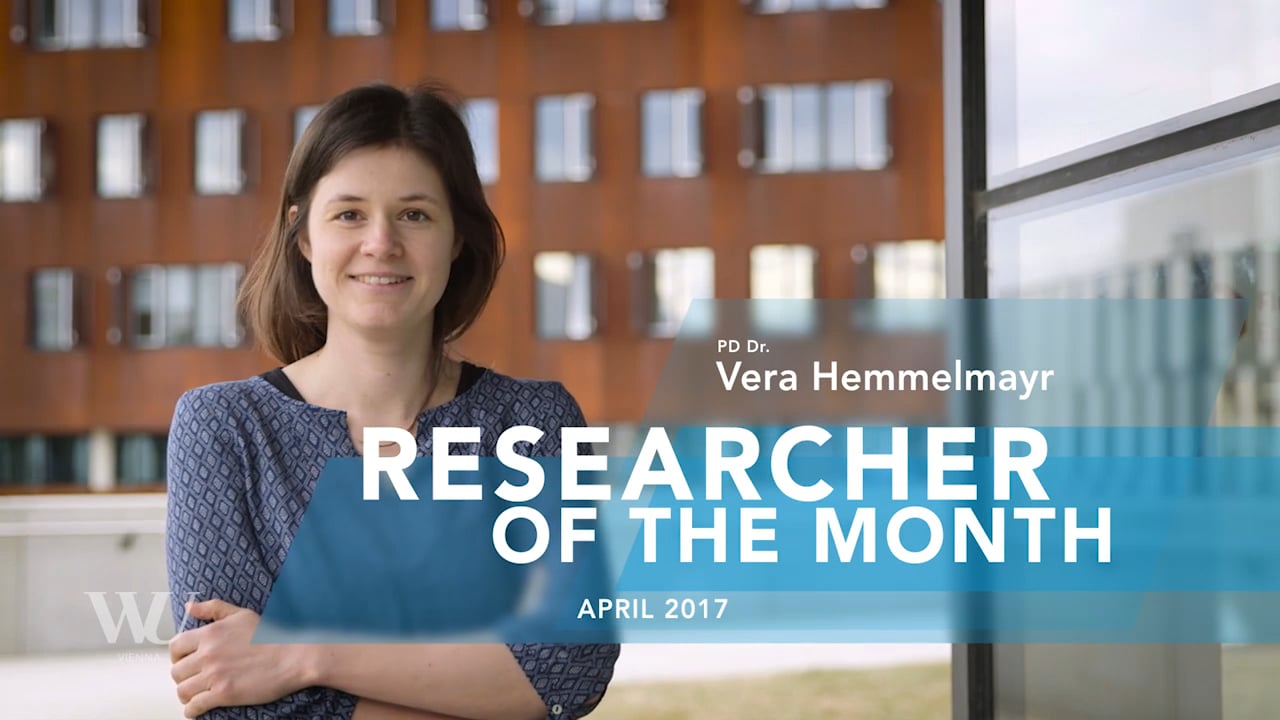Vera Hemmelmayr

Vera Hemmelmayr
Researcher of the Month
Freight bicycles and/or cargo vans? New algorithms provide the answers
Many urban planners are pinning high hopes on the freight bicycle as one of the key means of urban transportation in the future. Some pioneering initiatives have started to bring these cargo bikes to the streets in Vienna. Up to now, however, it has been unclear which logistics solutions are best suited to individual cities and which role freight bicycles play in these approaches. One of the main problems is how to best synchronize trucks and freight bicycles in bimodal logistics. Now the work of Assistant Professor Vera Hemmelmayr from WU’s Institute for Transport and Logistics Management provides answers to this problem for the first time. Together with her colleagues Alexandra Anderluh (WU) and Pamela Nolz (AIT), Vera Hemmelmayr has developed an algorithm designed to tackle these challenges.
As of 2017, over half of the world’s population lives in cities, and this figure is growing: According to OECD estimates, by the year 2100, this number will rise to approximately 85%. The metropolitan areas of the future will require efficient and environmentally friendly logistics. This is why Assistant Professor Vera Hemmelmayr from WU’s Institute for Transport and Logistics Management is doing research on sustainable logistics solutions for freight transportation in urban areas. She is not only looking for the best routing solutions but also at the negative effects of freight transportation on safety, the environment, and traffic. WU researcher Vera Hemmelmayr’s field of expertise is known as city logistics. She is developing special algorithms, called metaheuristics, which can be used to identify logistics scenarios in urban areas and develop appropriate solutions. “Finding the best solutions for individual metropolitan areas is a very complex task that requires considerable time and effort, so we have developed algorithms for different scenarios to be able to compare them. This allows urban planners to apply the different scenarios to their city to find the solution that best suits their needs,” Vera Hemmelmayr explains. City logistics has also gained recognition as an important topic in Vienna, as evidenced by recent conferences focusing on this field of research.
A close look at the last mile
Freight bicycles are among the most important means of transportation for the cities of the future. Due to their inherent range and capacity limits, freight bicycles are inefficient when large distances have to be covered, for instance when it comes to delivering goods from warehouses in the outskirts to customers in the city center. These kinds of deliveries make it necessary for the cargo to be transloaded from larger vehicles to freight bikes at rendezvous points, from where they are then delivered to their destination by bike. Based on this premise, algorithms have been developed for three scenarios: Scenario one is based on the assumption that interim storage capacity is available at the transloading point, which means that the goods can be stored there for short periods of time. In the second scenario, no storage capacity is available at the transloading points, i.e. the cargo has to be moved from the vans to the freight bicycles on the spot. This means that the vans and bicycles have to be synchronized to be at the same place at the same time, but it also eliminates the need to find storage space in densely built-up city areas. The third and last scenario is based on the conventional approach, where freight is delivered by truck or van only. This approach corresponds to a vehicle routing problem. The work of Vera Hemmelmayr and her colleagues will make it possible to apply these different scenarios to specific metropolitan areas and determine which approach works best for a specific city.
City logistics for 2030
“Transportation is essential for any city, but it also creates negative effects such as traffic jams, noise and pollution. The number of city dwellers is increasing, as is online shopping. Consumer behavior has changed. Many customers are now asking for same-day delivery of ordered goods. We expect that these developments will also lead to an increase in transportation volumes,” Hemmelmayr points out. “Add to that the ambitious climate targets that have been set, for instance the goal of essentially CO2-free city logistics in major urban centers by 2030 specified in the EU’s White Paper on Transport. All of this means that we desperately need solutions that take social and environmental concerns into account, as well as business and economic considerations. Some pioneering initiatives have already been launched in Vienna that aim to establish the freight bicycle as an ecologically sustainable and low-noise means of transportation.”
